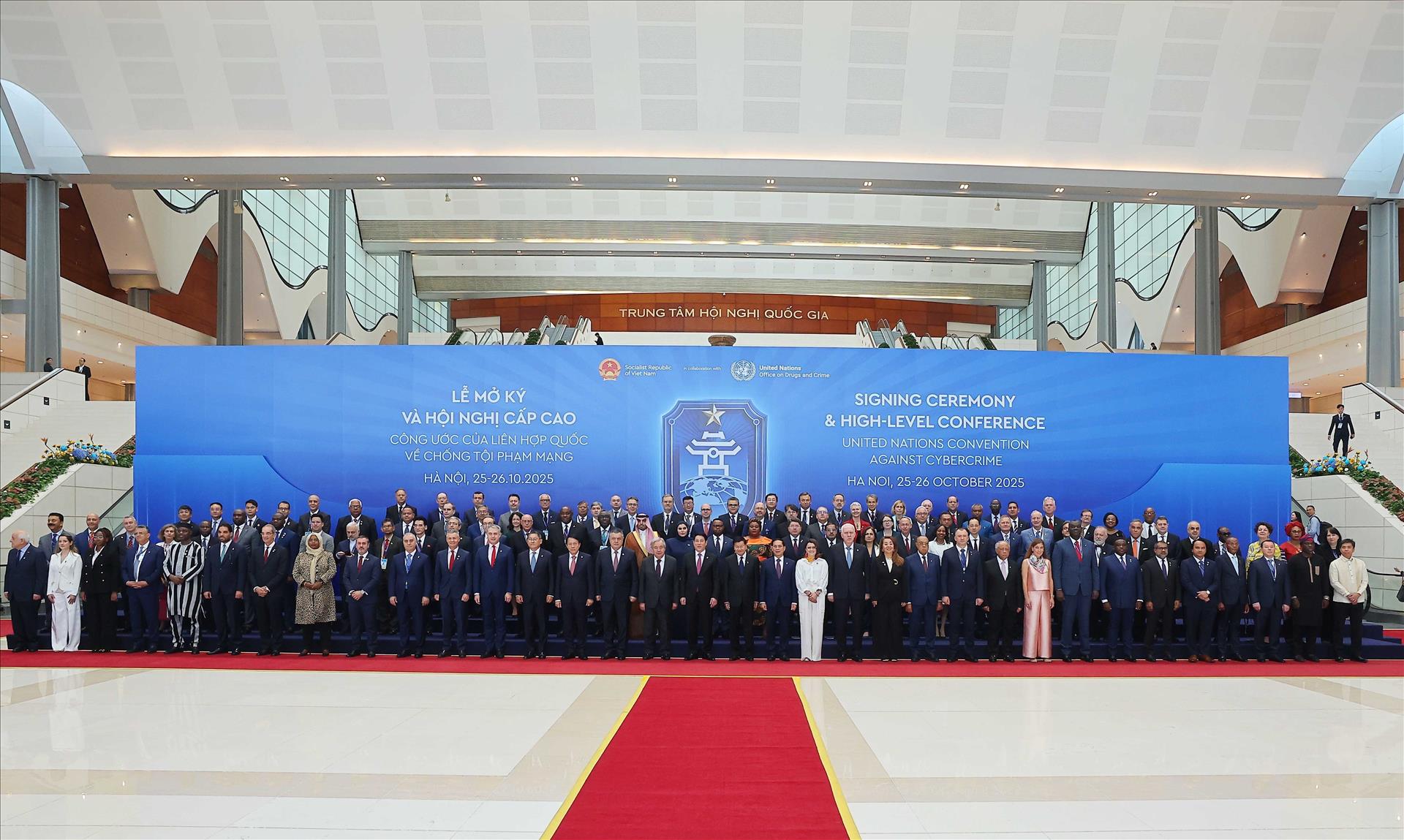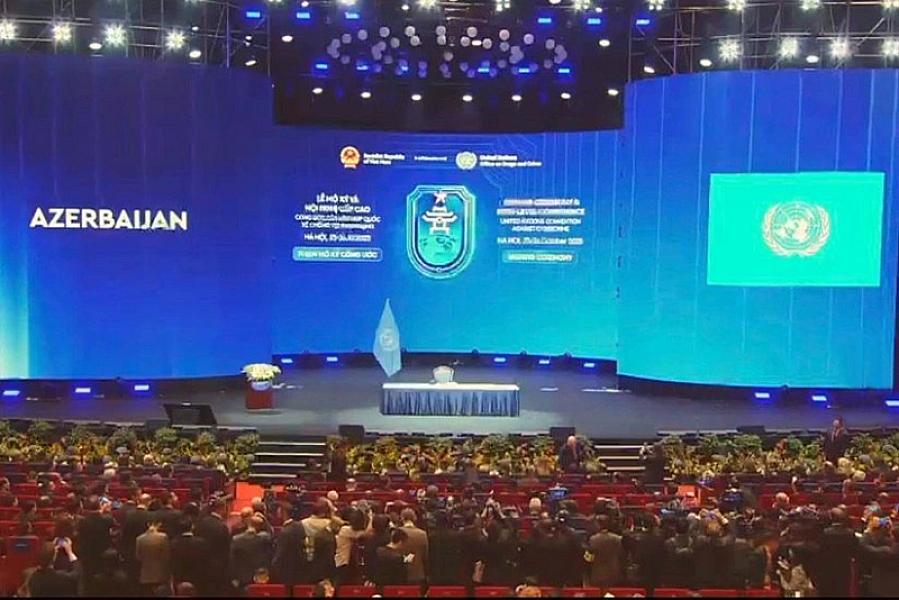On October 25-26, a solemn signing ceremony of the UN "Cybercrime" Convention by states was held in Hanoi, the capital of Vietnam. The event was attended by UN Secretary-General Antonio Guterres, President of Vietnam Lương Quốc, heads of delegations from various countries, representatives of international organizations, and experts.
Based on the relevant decree of President Ilham Aliyev, the convention was signed on behalf of the Republic of Azerbaijan by General-Colonel Ali Naghiyev, head of the State Security Service.

The convention highlights, as main objectives, the provision of legal cooperation among states in combating cybercrime, prevention of misuse of information and communication technologies, and regulation at the international level of mechanisms for the collection and presentation of electronic evidence.
On October 25-26, a total of 72 countries signed the convention. Azerbaijan being one of the first countries to sign the convention can be regarded as an indication of the country’s contribution to international cooperation in the fight against cybercrime and to ensuring the security of the global cyber environment.
What does the UN "Cybercrime" Convention give to Azerbaijan as a whole? What does Azerbaijan’s signing of this convention mean in terms of obligations towards other countries and vice versa? Does joining the "Cybercrime" Convention necessitate any changes in Azerbaijani legislation?
Regarding the topic, Medianews.az was informed by Elvin Abbasov, chairman of the Azerbaijan Information and Communication Technologies Industry Association, that signing this convention is an important step for Azerbaijan in terms of further strengthening its position in the international cyber security system and acting as an active party in global cooperation in this field.
According to E. Abbasov, the UN "Cybercrime" Convention regulates legal cooperation among states in investigating crimes such as misuse of information and communication technologies, cyber espionage, fraud, theft of personal data, and infrastructure attacks, as well as in the processes of collecting evidence: "Azerbaijan’s signing of this document means that our country undertakes to apply international standards in the fight against cybercrime, to carry out the exchange of information and evidence within the frameworks of international mechanisms, and to act in accordance with the UN-determined procedures concerning mutual legal assistance and extradition in this area.
At the same time, it allows other states to cooperate more closely with Azerbaijan in the field of cyber security, accelerates information exchange, and increases mutual trust in the investigation of cross-border cybercrimes."
E. Abbasov noted that from a legal perspective, joining the convention may also necessitate certain updates in national legislation: "This includes the adoption of a separate law 'On Cybercrime' or more precise regulation in the current Criminal Code of provisions such as 'unauthorized access to computer data,' 'collection and protection of digital evidence,' and 'storage and presentation of electronic information.' The main goal is to harmonize national law with international legal standards and to ensure coordinated activities of investigative and judicial bodies in this direction.
This step also has strategic importance in terms of protecting Azerbaijan’s digital sovereignty, raising the cyber defense level of the state and private sectors, and sharing international experience and technological capabilities. Thus, signing the convention is not just a formal legal act, but part of a systemic policy that ensures our country’s safe and responsible participation in the global cyber environment."
ICT expert Ilkin Mammadkarimov Medianews.az stated that the provisions of the convention may affect several areas of Azerbaijani legislation—namely the Criminal Code, the Criminal Procedure Code, and normative acts related to information security: "Especially regarding issues such as the collection and storage of electronic evidence, international transfer of data, and mechanisms for responding to cross-border data requests, some legal regulations may be necessary."
I. Mammadkarimov emphasized that these changes will strengthen the legal foundations of the fight against cybercrime and integrate Azerbaijan into a more effective international legal cooperation system.
Nailə Qasımova,
Medianews.az
Note: This article was prepared on the topic "Development of Information and Communication Technologies" with the financial support of the Media Development Agency of the Republic of Azerbaijan and in accordance with the competition conditions.








